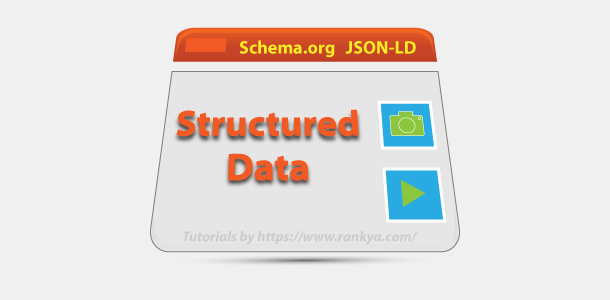Internet and technology that fuels it evolves, now mobile device usage to access the internet is the new reality. Search engine market being the most profitable for giants like Google, Bing and others must also evolve to meet the demands of today’s internet users.
All this allows search engines like Google, Microsoft, Yandex and Bing to provide richer, and more engaging user experience for their own customers. Understanding that search engine optimization isn’t about placing some keywords here and there, and modernizing your website so that it too can take advantage of Schema Markup for SEO is only a smart investment for your website’s future growth.
- Schema: representation of a plan or theory in the form of an outline or model.
- Markup: HTML code (Hypertext Markup Language)
- Search engine optimization of a website so that visitors can find the information they are searching for, and also search engines like Google can access it, index it, understand it, and rank it.
Schema Markup for SEO
It is then safe to say, schema markup is just coding your web site and web pages to better represent its content for search engines like Google. This will then allow search engines that support Structured Data to better index your content, as well as provide their own users with more engaging user experience (e.g. Rich Results and Rich Cards)
Microdata vs RDFA vs JSON-LD
Think of each of these terms as allowing you to markup your content in different ways. And think of all these terms as just Structured Data types.
- Microdata model consists of groups of name-value pairs known as items
- itemscope is the encapsulation of a new item (a group of name-value pairs). For example: <section itemscope and then defining the itemtype makes that entire section related to that group of itemtype
- itemtype are the type of item you are marking up. Think of it as saying “this HTML block is a type of ContactPage, this HTML block is a type of WebPage, this HTML img block is a type of ImageObject and so on
- RDFA (Resource Description Framework in Attributes) basically is another way for adding markup to your web pages. Because HTML XHTML and XML markup is all different from one another, and yet, all fulfil the same purpose. So when you think of RDFa, think MetaData that can be used to structure web documents.
- JSON LD (Javascript Object Notation for Linked Data) think of this yet another way to structure your web page data. But this time you are using JavaScript objects linking them using notation, hence JavaScript Object Notation (see samples below)
<script type="application/ld+json">
{
"@context": "https://schema.org",
"@type": "Organization",
"url": "https://www.your-company-site.com",
"contactPoint": [{
"@type": "ContactPoint",
"telephone": "+1-401-555-1212",
"contactType": "customer service"
}]
}
</script>
Notice the bolded text above, @type is just like the itemtype. Thus it is a type of item. In this example, its a type of Organization, and then, type of ContactPoint belonging to that Organization. As you can see the importance of giving more meaning to the Structure of a web document using Structured Data.
How Can You Markup Your Content?
There are many different ways to go about marking up your website’s coding, and, there are also many plugins for popular content management systems like WordPress and Magento (Rich Snippets Suite) which will assist in marking up your content using Schema.org markup.
Should You Use Microdata Or RDFA Or JSON-LD?
As briefly explained above, all of these are a way for you to Structure Website Data. That means, you can use all or any depending on the website content you have.
Video Lesson Explaining How to Add Structured Data
Update: concerning the video insights, the itemprop url should have been marked up as itemprop sameAs for Google Social Links markup.



Thank you so much very helpful information about schema markup
I am glad to hear that you have benefited from this post by #RankYa, more insights will be published soon, till then, thanks for stopping by Reall
Hello Sir,
Code is same for every plat form??
Like simple i copied your code and add mine info and add in site header that is enough??
As for as using JSON-LD schema markup, yes you can use it on any website and CMS.
Great info. Thanks for sharing…keep writing.
thanks Arjun, I am glad you found using Schema markup for Search Engine Optimization of help
I agree, internet is all about semantics now and search engines know this. Awesome! I love it when website optimization can be done better with these latest Schema Markup techniques. That is music to my ears. Thanks for sharing